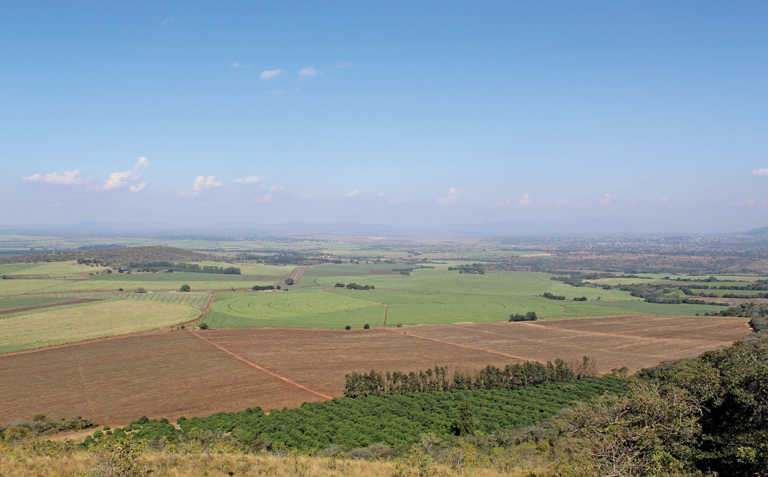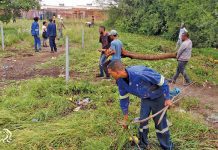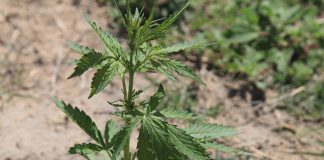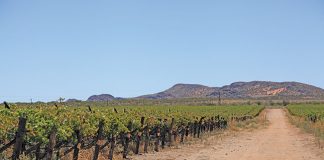
Photo: Lindi Botha
Tomahawk Farm in Mpumalanga is one of the largest subtropical fruit producers in South Africa.
When the local Matsamo community instituted a land claim against the farm in 2010, there was concern that local and export markets would lose a major supplier, and the region would lose the economic activity generated by the farm.
Instead, through integrated planning and relationship-building, the old and new owners joined hands to transfer skills, uplift the community and grow a thriving business.
The Matsamo community’s land claim included 10 000ha in the Kaalrug area near Malalane, one of the largest areas of subtropical crop production in the country.
About 1 500 households formed part of the land claim, putting the amount of people benefitting at about 6 000. Of the various farms that are now owned by the Matsamos, some have been leased back to the previous owners while others have entered into joint ventures (JVs).
In 2011 the Matsamos took ownership of the 2 000ha Tomahawk Farm as well as the neighbouring Neos Estate, which is now run as a JV between Tomahawk and the Matsamos.
Tomahawk, which is leased from the Matsamos, is in the process of finalising a JV that will be in place for nine years. A new business will be created to run the farm, with the Matsamos and Tomahawk each having an equal share.
Tomahawk comprises 700ha sugar, 120ha mangoes, 150ha litchis, 400ha citrus and 240ha bananas. Neos Estate has 300ha sugar, 55ha citrus, 45ha mangoes and 15ha litchis.
Stuart Butcher, sales and marketing director at Tomahawk, says the farm’s success took precedence over everything else.
“The owners and directors put so much into Tomahawk; our entire working lives are here. We didn’t want to risk watching this farm go to ruins. We also have a social responsibility because we employ between 750 and 1 500 people, depending on the season. These people needed to be assured of a job.”
Moses Thumbathi, chairperson of the Matsamo Community Property Association, says that when the land was transferred they did not have the resources to run a farm of this scale.
“During the lease period we developed a relationship with Tomahawk that has shown us what they are worth. We wouldn’t want any other partners because of the skills they have to take this farm forward and the relationship they’ve built with us.”
Butcher adds that because Neos is a smaller farm, it was easier to begin there.
“We wanted to get the ball rolling and show the Matsamos that a JV could work. We’ve now been operating for three years and the farm is a great success.”
According to Thumbathi, community members have learned much from Tomahawk.
“It’s hard to borrow money if you don’t have a track record, but the partnership has helped us because we can prove we have people with the know-how to farm.”
He says that at the beginning of the lease the community did not have much say in the running of the farm.
“It has been a learning curve from our side; we had to rely on [Tomahawk management]. But their willingness to work with us and communicate openly has made the process easier. We can express ourselves about the challenges and we appreciate everyone’s attitude.”
Giving feedback
At the start of the process, the Matsamo community set up committees to deal with the businesses and provide feedback to the many community members who were beneficiaries.
Detailed integration plans that formed the basis of the JVs were drawn up; these stipulated how the partnerships would be managed and the businesses run, as well as how the skills transfer would take place.
Strategic planning meetings are held annually with all parties. Butcher admits that not owning the land has been a challenge.
“There was a long period from the time the land claim was started until it was finalised. Then we had a lease agreement, then a JV, where you go through a period of uncertainty.
You can’t invest in the farm because you don’t know if you’ll get a return on that investment.
“Our packhouses are quite old and in need of an upgrade but because we’re about to go over to a JV, we have to wait until the agreement is finalised and both parties have raised the capital.”
He adds that most of the produce is exported and must therefore meet international requirements.
“We have all our audits in place and our customers have been very understanding of the whole land reform process. Clients that take a massive portion of our produce were concerned that they could lose their biggest supplier if the farm went belly-up. So they’ve worked with us to ensure that we can keep supplying products that meet their standard until we’re in a position to upgrade our infrastructure.”
The open communication between the Matsamos and Tomahawk has meant that reinvestment in the orchards can continue.
“During the negotiations, we had to take the time to explain why things are done in a certain way. We had to get the community to think like farmers. This is done through continued interaction and showing them around the place. They’re welcome here at any time and this has also cemented the trust between us.”
Butcher adds that the diversity of the operation has made the transition more complicated.
“We have specialist managers on all of our crops and now we need someone from the Matsamo community to train in each of those positions.”
One major advantage of the transition is that the Matsamo community is benefitting from an operation where the five directors running the farm have more than 100 years’ experience between them.
“This knowledge that is being transferred adds huge value. As a result, the operation is financially sound, sustainable and diverse enough to see everyone through the good times and the bad,” says Butcher.
Thumbathi concurs. “Our community can learn and grow, and the farm itself can expand because everyone is being equipped with skills through this process. The success that has come from this partnership has meant all our beneficiaries get an income from the farm.
The entire area benefits. The community also gets to know Tomahawk and sees it in a positive light.”
Taking things forward
Butcher believes there are opportunities within the land reform process to add value to farms.
“One needs to take a long-term view. Many land claim farms have failed because the previous owner has milked the farm and walked away, leaving the community with a run-down farm,” he says.
Since entering into the lease agreement, the team has added an extra 70ha of mangoes and 100ha of citrus, and continued replanting bananas. Some sugar cane has also been removed to make way for other, more suitable crops.
“We’ve continued to run this farm with its future success in mind,” says Butcher.
“We feel strongly that Tomahawk must be a financial, farming and community integration success story and would love to see the Matsamo community expanding the farm even further and making it a flagship farm.”
Email Stuart Butcher at [email protected] or Moses Thumbathi at [email protected].













